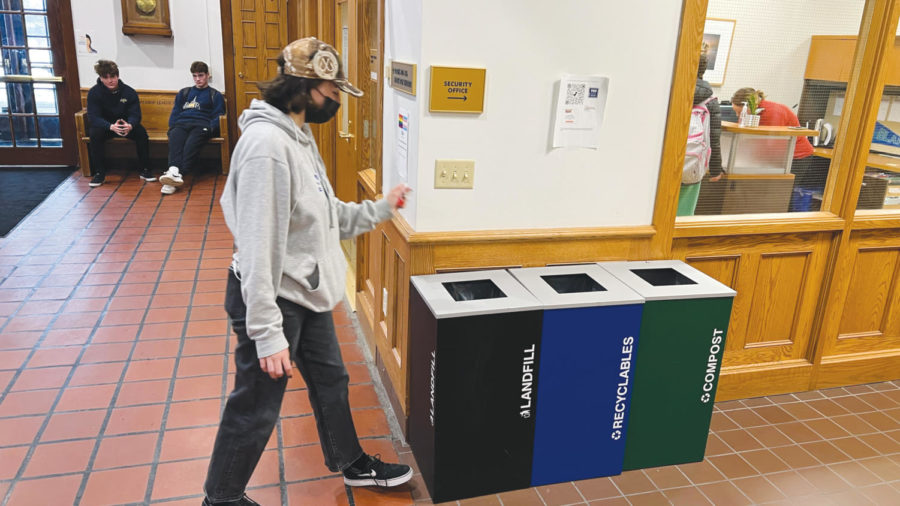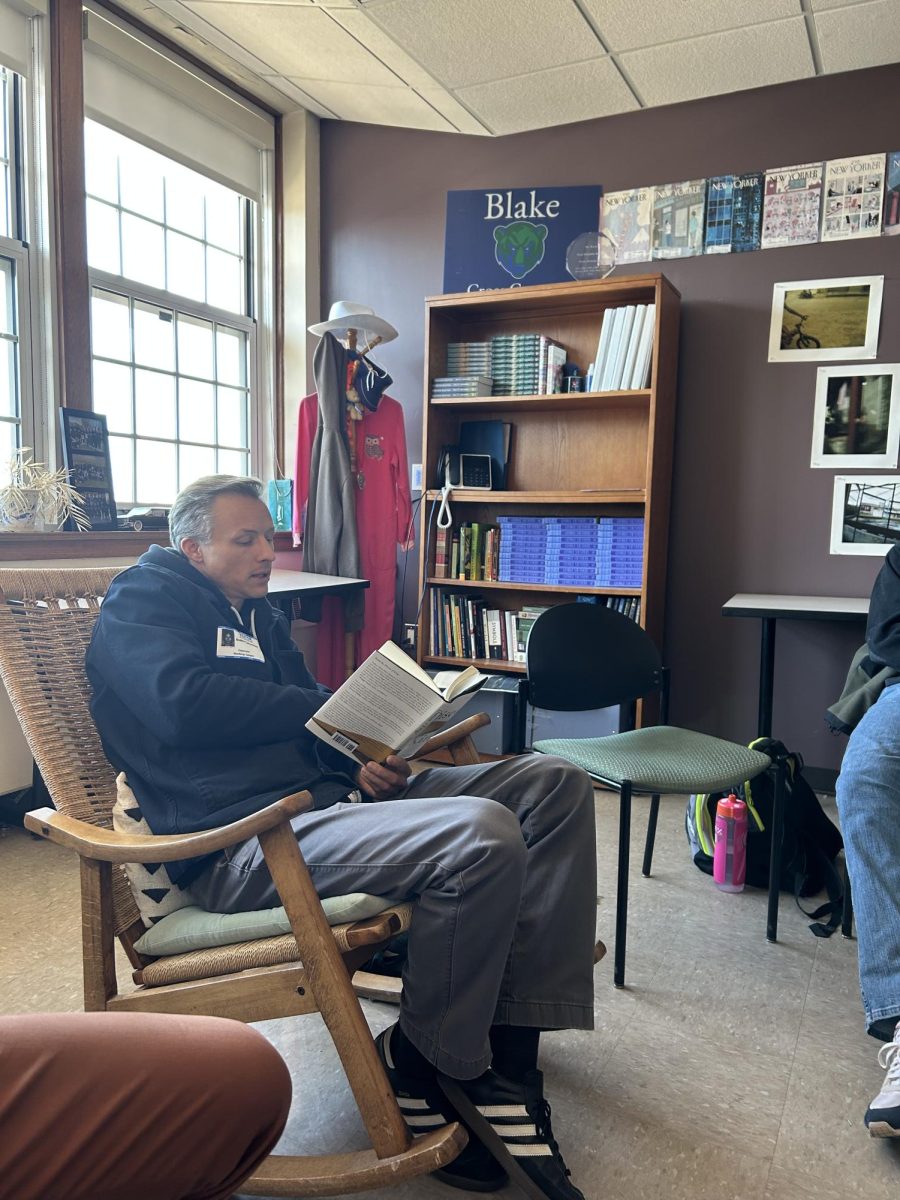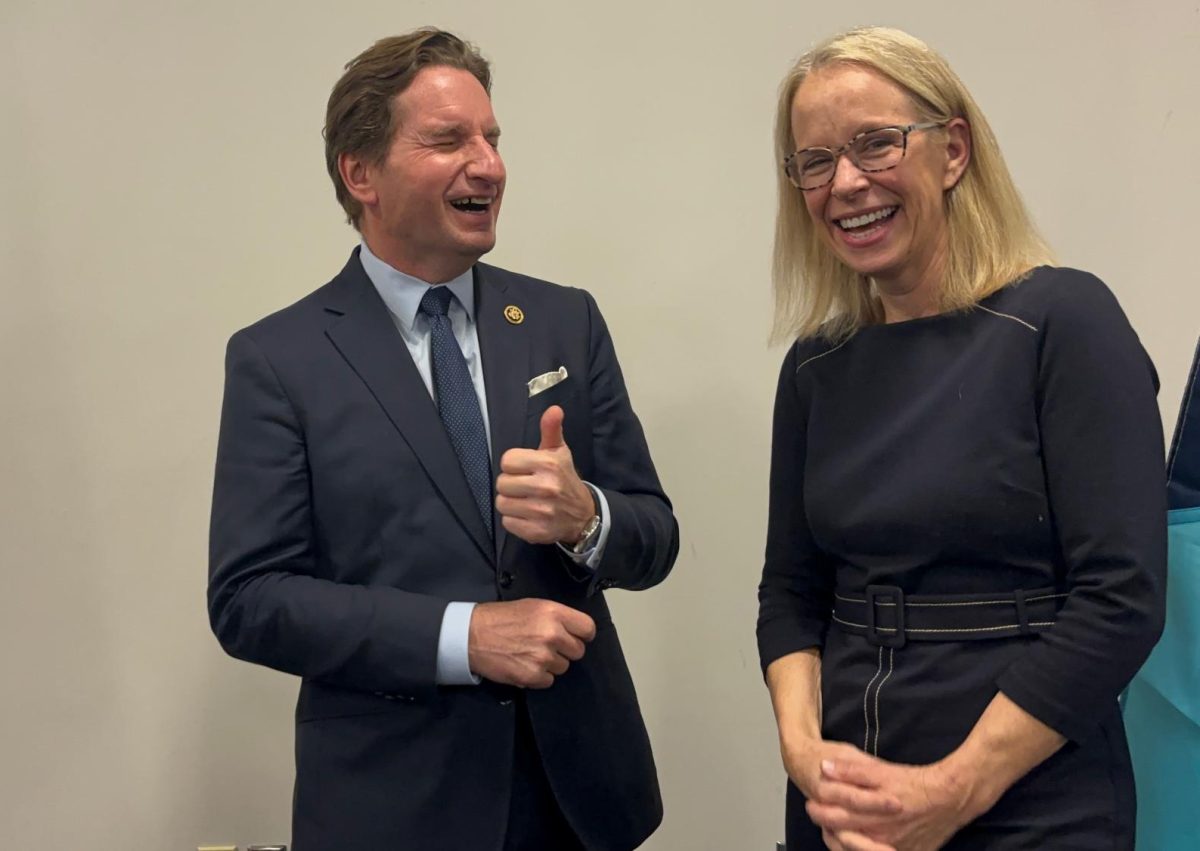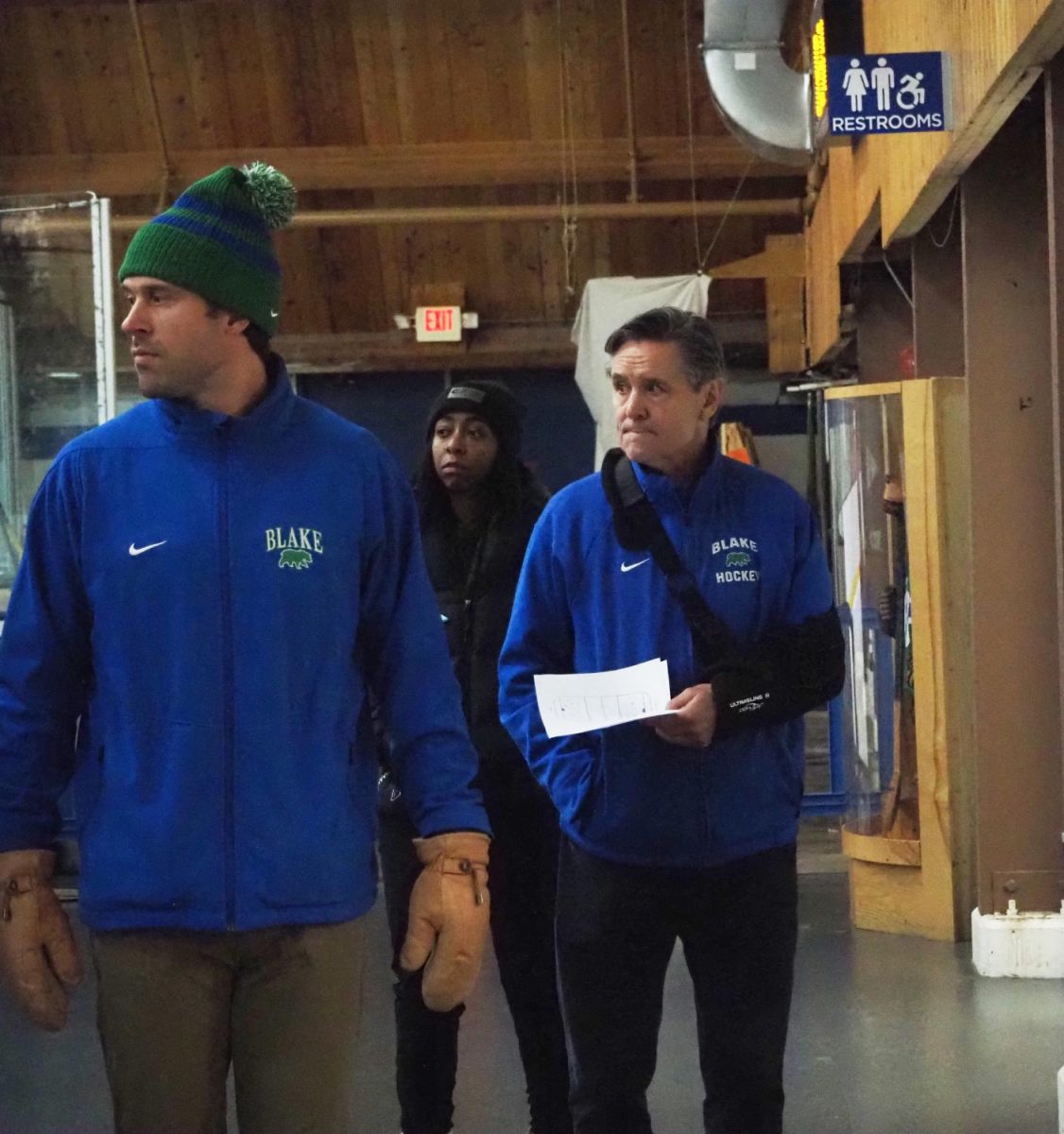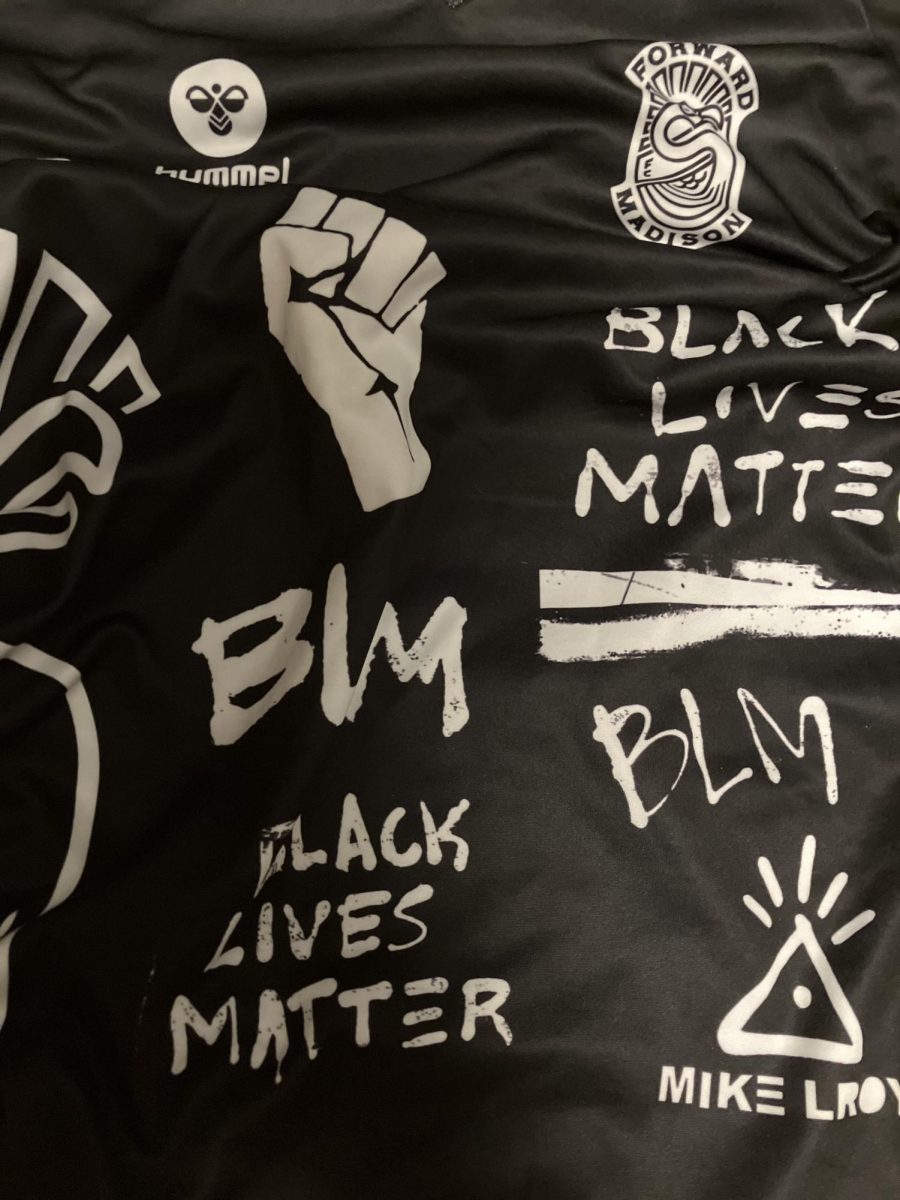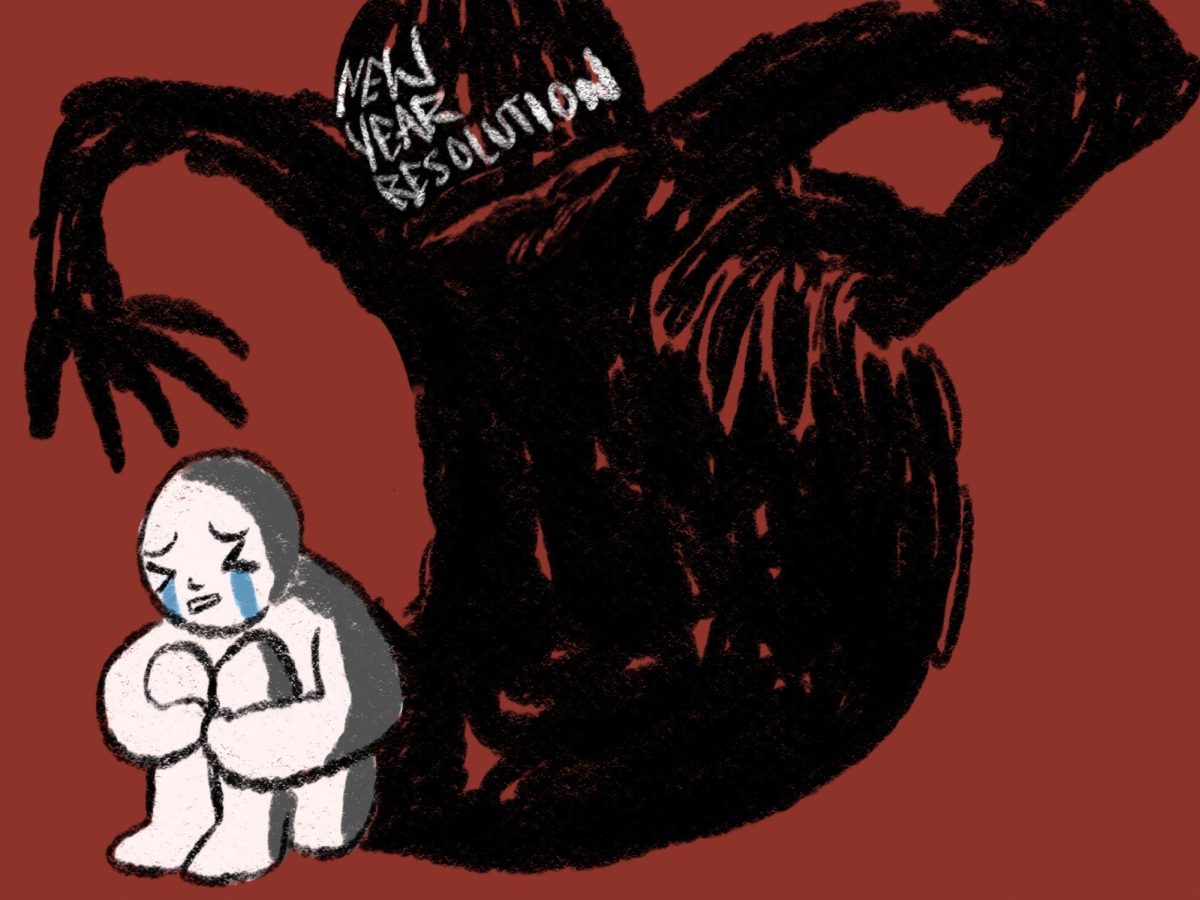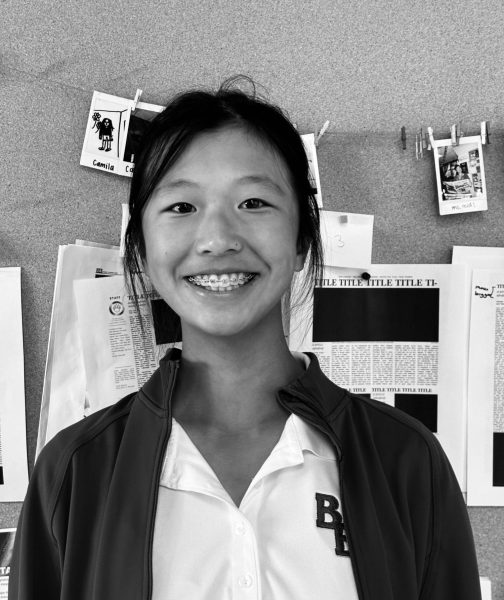The trash cans in our school are emptied every single day; three times a week, the landfill dumpster gets picked up as well as recycling and compost, which are collected twice a week. Ultimately, each load is filled with 12 to 14 more cubic yards of landfill trash, and six to eight cubic yards of recycling and compost, according to Russ Gronlund, Maintenance Lead at Blake for the past 35 years.
Gronlund explains, “If there’s [a] mixture in, let’s say the compostable or the recycling, it will all go up in the landfill trash.” Gronlund notices, “Students, especially at breakfast or lunch time, [don’t] pay attention to which one they put their stuff in.”
Years ago, there was a chaperone to watch students dispose of their trash. The trash accumulated then was significantly less than the trash accumulated now. Jake Vraa, Maintenance Assistant, explains how “the trash build up in the school can be inevitable, if students bring a Starbucks cup everyday or don’t like their food, it’s just how it is.”
Previously, the compostable bin was given to a pig farmer. This practice made sure that food wasn’t wasted and was instead given to the pigs for nourishment, but due to liability reasons, this does not happen anymore.
Gronlund says that it is important for students to not waste food and especially important to “pay attention to where you are putting your food trash, [and pay] attention to [which bin you] put your candy wrappers in” or else it will all go into the same landfill at the end of the day.
When asked about student awareness, Gronlund says, “I don’t know, because I don’t think a lot of them care…they don’t really wonder how much people bring in, [even] things like [advisories], and how often people bring in donut boxes and things like that.”
Justin Krelitz ‘23 says, “It isn’t surprising that people put landfill trash into the organics during lunch. Really it’s sad for all parties involved, because it disrespects not only the custodians, but the student body as well. It’s just a really bad look—private school kids excessively littering. It’s just a little too close to ‘rich kids disrespecting the help.’”
Gronlund notes, “I would wish that somebody would bring it up, like the deans or something. Just to tell the kids to be more mindful where they throw their trash. If nobody makes [students] pay attention, they’re not gonna, and why should they?”
A Blake alumnus once told Gronlund, “My one complaint from Blake is that because everything is so different there, and I wish we were held accountable more to get more ready for college.”
Gronlund wishes that there were chaperones standing next to the compost bins in the lunchroom, watching faculty and students dump their food and trash in the correct bins. Gronlund explains, “I think it would definitely help [if students didn’t waste their food], but I think it would be really hard to [implement] because there are no teachers here that would stand there and make them.”
Brett Weber, the executive chef, says how he and his team try to “[Minimize] it as best as possible, it [is a] tricky game because [of] the amount of you know students and faculty on the campus and we’re trying to make everyone happy.” His team tries to repurpose the foods (that are still in a healthy state) into new dishes to prevent food waste.
Weber sees a common trend where students ask for more pieces and that they just go into the trash. Besides food, the compostable cups and to-go boxes generate a lot of waste. He says, “It’s a service that we provide, and we’re happy to do it, we’re required to do it, [but] those cups probably close to 1500 a week, and same with the small to go boxes, probably 5 to 6 hundred.”
Weber says, “I mean I wish humans in general [were more mindful about food waste]. I don’t think Blake is unique to anywhere in the world to be honest with you…Not just Blake but humans in general consume more than we need.”
Gronlund says, “The way I look at it, [I] don’t think it has anything to do with appreciating us or not. I think we’re invisible to a lot of students. In the students’ eyes, we’re not even here. If we’re walking through with a cart or a two wheeler that we have to unload, they walk right in front of us and make us wait for them to cross, even when we’re carrying 300 pounds worth of product or something. We’re just invisible, they don’t even see us. They’re all in such a hurry that they just feel that they can do what they want when they want.”
Weber explains how “please and thank you goes a long way…I tell [my two daughters] all the time if you grow up and learn how to say please and thank you, you’re gonna go a long way in this world, because I think kindness goes a long way.
Krelitz explains, “As a school we have to ask ourselves, and think long and hard, if this description fits us. Because it very well might. It is our responsibility to do better. We are more than capable. But no assembly announcement or email blast will do the trick. Individual students have to do the right thing. Respecting the staff and the school at large is what we have to do. It’s that simple.”


